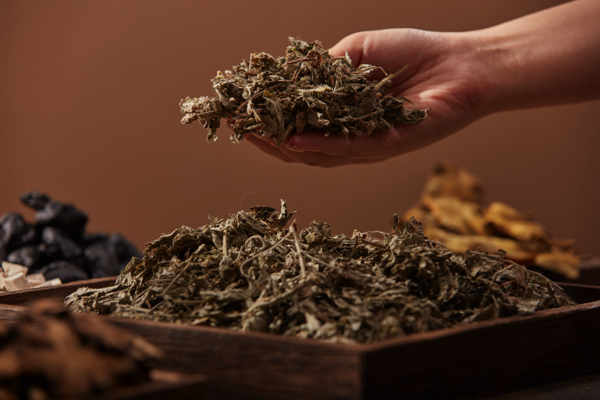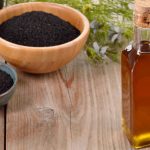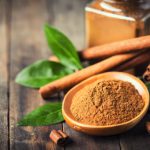
Wormwood: Bitter herb with potent medicinal properties
Tuesday, October 22, 2024 by Olivia Cook
http://www.naturalnewsherbs.com/2024-10-22-wormwood-bitter-herb-with-potent-medicinal-properties.html

Wormwood (Artemisia absinthium), a plant with a rich history and deep symbolism, has a unique blend of spiritual significance and medicinal uses.
It embodies the concept of bitterness – both as a moral warning against injustice and as a representation of human suffering. Yet, this bitter plant has evolved beyond its metaphorical roots, revealing a wealth of medicinal properties that have captured the interest of herbalists and scientists alike.
This bitter herb is mentioned nine times in the Hebrew Bible, often symbolizing the bitterness of corruption, injustice and moral decay.
In the time of the prophet Amos, wormwood was used as a metaphor to help the ancient Israelites reflect on how they had turned “sweet justice into something corrupt and bitter” by “abandoning the principles of fairness and righteousness, [and] twisting God’s laws (covenant)” that were meant to uphold justice. Wormwood became the perfect symbol for this message.
Wormwood is one of the most bitter herbs on the planet. It contains a compound called absinthin, which gives it extreme bitterness.
Wormwood’s therapeutic profile
Wormwood’s history as a medicinal herb is rich and complex – with roots stretching back to ancient civilization. According to the American Herbal Products Association, wormwood was first scientifically documented in the first century by the Greek physician and pharmacologist Pedanius Dioscorides in his influential text on therapeutic natural substances, “De Matria Medica.”
However, the herb was already known and mentioned in ancient medical writings as early as the time of the “father of medicine” Hippocrates, who lived sometime between the fifth and fourth century B.C. Hippocrates recommended wormwood for treating jaundice.
Over time, wormwood became recognized for its use in gynecological treatments, particularly for conditions like dysmenorrhea, so-called “female hysteria,” and sterility.
As centuries passed, wormwood’s medicinal focus shifted. By the third century B.C., ancient physicians were beginning to prescribe wormwood for digestive problems. Dioscorides and ancient Greek naturalist Theophrastus noted that wormwood’s intense bitterness was a factor in its usefulness in treating stomach issues, liver ailments, bile excess, jaundice, flatulence and even for parasitic infections like roundworms.
This change of focus marked a fascinating shift in wormwood’s therapeutic history, suggesting that ongoing experiments may have expanded its uses beyond what was initially understood.
Interestingly, while wormwood was not recorded as an antimalarial agent in Mediterranean history, Chinese herbalists recognized Artemisia annua (a relative of wormwood) for treating fevers – a precursor to its modern use in treating malaria, an infectious disease caused by parasites and characterized by fever and chills.
This is partly what earned Chinese scientist and pharmaceutical chemist Tu Youyou her 2015 Nobel Prize in Medicine for her discovery and study of the antimalarial substance “qinghaosu” – later known as “artemisinin,” now one of the world’s most effective malaria-fighting drugs.
Along with these benefits, historical evidence has also shown that this bitter herb has antispasmodic qualities, helping relieve digestive cramps and spasms, while its appetizer effect stimulates hunger and reduces feelings of fullness.
Wormwood also functioned and was used as a hypnotic to induce sleep – although care had to be taken with dosage due to its potential toxicity. Small quantities could cause nervous disorders, convulsions and insomnia. All of these mirror the symptoms of “absinthism” caused by the over consumption of absinthe. (Related: Natural remedies: How to use wormwood to boost your immune health during flu season.)
Wormwood’s story is one of transformation – from a biblical symbol of bitterness and broken justice to a plant celebrated for its medical healing properties. From the ancient texts of Hippocrates to the discoveries of modern science, wormwood’s dual nature – bitter yet healing – has made it a fascinating and enduring presence in human history.
Follow NaturalCures.news for more stories about medicinal herbs.
Checkout Mike Adams’ sermon about wormwood being revealed not as a bitter poison but as God’s anti-parasite cure.
This video is from the Abundance Church channel on Brighteon.com.
More related stories:
WHO: Artemisinin is a powerful remedy against malaria.
Wormwood is a natural remedy for treating intestinal parasites.
Sources include:
Tagged Under: Tags: alternative medicine, antiviral, Bible, Chinese medicine, cures, digestion, goodhealth, goodmedicine, healing, herbal medicine, Herbs, natural cures, natural health, natural medicine, Naturopathy, phytonutrients, plant medicine, remedies, Wormwood
RECENT ARTICLES


Wormwood: Bitter herb with potent medicinal properties
By Olivia Cook

Sermon 25: BLACK CUMIN SEED as God’s natural medicine
By Kevin Hughes

Traditional Chinese Medicine monomers offer hope for SAFER cervical cancer treatments
By Olivia Cook

12 Essential oils and their biblical references
By Olivia Cook
COPYRIGHT © 2017 NATURAL NEWS HERBS


